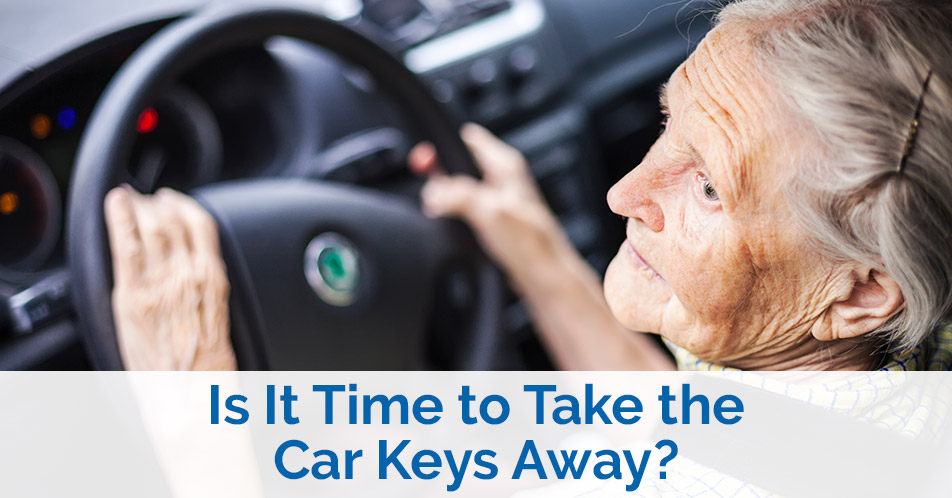After 50+ years of driving, it can be difficult for seniors to relinquish their driving privileges. For safety sake, however, you may find it necessary to request that a loved one stop driving. Although driving gives seniors greater freedom and independence, it’s not worth the risk of causing an accident, especially when seniors show signs of unsafe driving. The following tips can make it easier to help aging relatives give up their car keys.
Helping Seniors Adjust to a Non-Driving Lifestyle
Once an aging loved one shows signs of driving poorly, it’s time to consider alternatives to driving. As seniors age, it’s only natural for their driving skills to diminish. Talk with your loved one openly and honestly about your concerns for safety on the road. If your loved one shows signs of early dementia or Alzheimer’s, you can ask their physician to support your decision to limit (or suspend) driving privileges.
Discuss alternate options for transportation so your loved one can continue living the lifestyle they desire. Encourage your loved one to put safety first and make the wise, responsible choice to stop driving. Volunteer to drive aging loved ones to doctor’s appointments, shopping trips, etc., whenever possible, to make it easier for them to get where they want to go. By planning ahead, you can be better prepared for the day your loved one can no longer drive.
Signs of Unsafe Driving
When riding with older drivers, it’s important family and friends pay attention to their driving habits. If seniors show signs of driving poorly or erratically, it could be time for them to relinquish their license before they cause an accident. Seniors with medical conditions such as dementia or Alzheimer’s may experience symptoms of memory loss, confusion or disorientation while driving, putting them at greater risk of accidents. The following are some signs of unsafe driving to look out for when considering taking away the car keys of an elderly driver.
- Difficulty working the pedals or confusing gas pedal with brakes
- Weaving or straddling lanes
- Turning too sharply and hitting or going over curbs
- Ignoring stop signs or misinterpreting traffic signals at intersections
- Driving too slow or too fast due to lack of judgment in determining the flow of traffic
- Getting easily distracted, disoriented or lost when driving
- Forgetting routes to familiar places
- Counting on a “copilot” to drive safely
Make Safety a Priority
When it comes to driving, safety should be your priority. Under most circumstances, it’s much safer for elderly seniors to be driven by family or friends, take a taxi or use senior transport than try to keep up with the rigors of driving. By making sure your loved one has reliable transportation when needed, you can make it easier for them to make the transition to a non-driving lifestyle.
At Sunny Days In-Home Care, we offer dependable in-home senior care services that include safe transport for medical appointments and errands. To learn more about the services we provide, call 724-260-5186 today.

